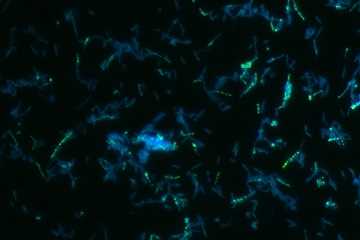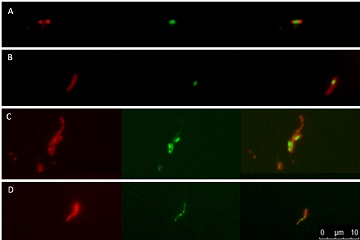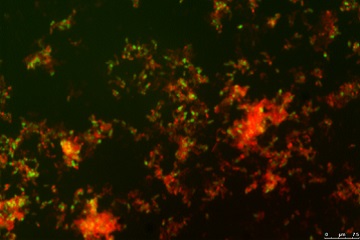Infection and Global Health Research Division
Research at the University of St Andrews School of Medicine
Mycobacterial resistance and disease relapse
Mycobacteria, and specifically Mycobacterium tuberculosis (MTB), cause disease and death on a global scale but disproportionately affect low- and middle-income countries (LMICs). One of the difficulties of treating MTB is its propensity to evade the immune system and the intensive drug regimen prescribed to suffering patients. This is believed to be in part due to the bacteria’s ability to enter a ‘dormant’ phenotype, leading to ‘latent’ disease. When in this phenotype MTB will appear to have been treated successfully but will frequently relapse after a number of months or years.
Previous work undertaken in Dr Hammond’s lab has shown that it is possible to force mycobacteria into a dormant phenotype using a variety of stress conditions. When in this phenotype mycobacteria express lipid inclusion vesicles, termed lipid bodies. These lipid rich cells have been shown to be up to 40X more resistant to the antibiotics used to treat patients.
What Dr Hammond and colleagues are attempting to do now is to discover the mechanisms by which mycobacteria become lipid rich, if this can be prevented and how to treat patients that carry a large proportion of these resistant bacteria as part of their infection.



